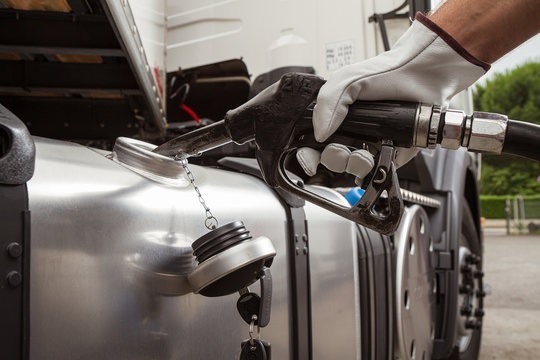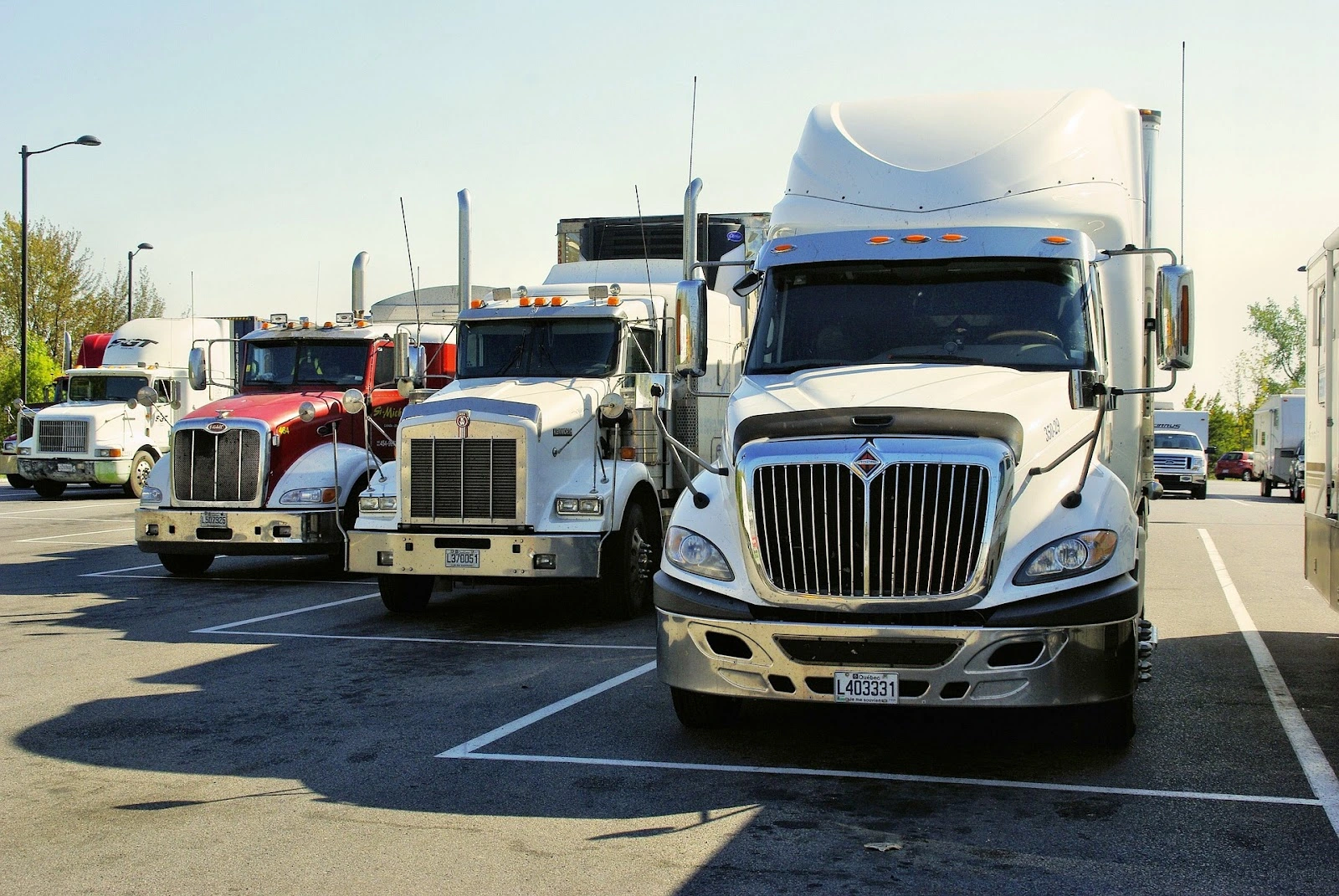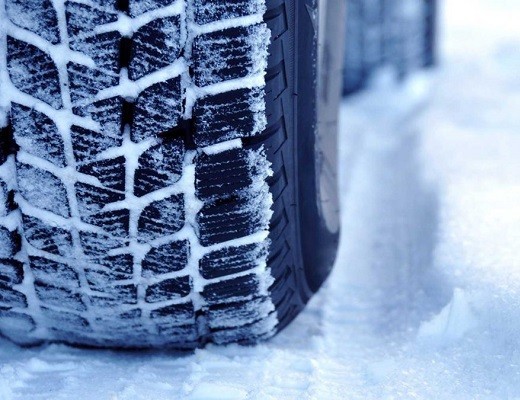

Best Diesel Fuel Economy Tips
As an owner-operator or a small truck fleet, the cost of running your truck (or fleet of trucks) matters. Fuel mileage is one of the biggest outgoings and can be unpredictable as a result of fluctuating gas prices. But that doesn’t mean you have to pay any more than is necessary to complete the deliveries. In this blog post, we’re sharing our best diesel fuel economy tips to help you keep your costs down, maximizing the profit from each completed job. Let’s get started.
-
Diesel Fuel Saving Tips: Drive Efficiently
- Watch your Speed
- Don’t Overload the Truck
- Reduce Drag While Conserving Fuel
- Diesel Fuel Economy Driving Tips: Track Your Spending
- Fuel Saving Tips: Stay on Top of Truck Maintenance
- Diesel Engine Fuel Saving Tips: Plan Your Journey
- The Final of Our Tips to Save Diesel Fuel: Turn Off the Engine When You Stop

Diesel Fuel Saving Tips: Drive Efficiently
The first of our diesel fuel-saving tips for better fuel mileage is perhaps the most effective, but it’s also one of the most neglected. Driving efficiently means you complete the job using the least amount of fuel required. There are a few ways to achieve this, so here’s what we recommend:
Watch your Speed
It can be tempting to accelerate as fast as possible when attempting to reach speed in your truck, but this is one of the fastest ways to burn through fuel. Instead, aim for smooth and steady acceleration, gradually increasing in speed, or use cruise control for smoother driving. In reality, hitting the pedal hard will only shave a couple of seconds from your total journey time — but it will cost you far more than your time-saving in diesel.
Don’t Overload the Truck
Of course, trucks by their nature are heavy — and therefore, use more fuel. Depending on what you’re transporting, there might not be much you can do to reduce the weight of the truck and save on fuel. However, it’s an important consideration. You should always be aware of the maximum load for the truck, and take care not to exceed this. If you can, don’t carry anything in addition to what you need — no unnecessary accessories or modifications to the truck.
Reduce Drag While Conserving Fuel
A much-debated topic when it comes to saving fuel relates to the use of air conditioning and drag. Many people believe it’s best to drive with the windows open, rather than using the truck’s air conditioning, which uses fuel to cool the cab down.
So what’s the best option? Generally speaking, opening the window is best when you’re moving at a slow speed. However, as the speed increases, an open window introduces drag. This means your truck will need to use more fuel to compete against the drag and maintain speed. In these cases, it’s more efficient to keep the window closed and use the air-conditioning to maintain a comfortable temperature. The precise tipping point varies between vehicles and loads, so experiment with your fleet to figure out what you should recommend to your drivers.
Diesel Fuel Economy Driving Tips: Track Your Spending
If you don’t know how much you’re spending on fuel, how do you know when you need to reduce the bill? Understanding your expenses is a crucial part of running any business, with costs easily stacking up if you don’t. Fuel is the perfect example. Many dismiss the cost of gas as something they can do little about. But the truth is — when you track your spending, you can identify options to bring this cost down and increase profits.
Tracking your speed and operating your truck or equipment in the highest possible gear also helps you price your services appropriately. This is especially important if you’re managing a fleet, with drivers independently responsible for their fuel consumption. An insight into the expected fuel costs allows you to identify drivers who might not be driving efficiently or trucks that require maintenance. This knowledge will help you provide training to reduce your spending on diesel and keep track of your fleets’ overall performance.
Fuel Saving Tips: Stay on Top of Truck Maintenance
One of the best fuel-saving tips for dispatch services is to stay on top of maintenance. When you’re driving a vehicle every day, it can be tricky to spot declines in performance. Establish a routine for checking up on some of the common issues, including:
- Checking Your Tires. Staying on top of your tire pressure can reduce fuel mileage and consumption by as much as 10%, according to NACFE. It also improves the safety of the vehicle, another important consideration when you’re traveling far and wide. The recommended tire pressure will be found in your truck’s documentation, so make sure you know what it is and check them regularly. It doesn’t take long! You should also keep an eye on the tires themselves, replacing them when they become worn.
- Changing Your Filters. Your truck has several filters to keep it running efficiently. Specifically, it’s important to pay attention to the air and fuel filters. Make sure you add a note to your schedule to check them often, replacing them as they become clogged and ineffective.
- Maintaining the Oil. Oil also plays a crucial role in your truck’s fuel economy. Think about it: your truck is made up of moving parts, and the oil keeps it all moving smoothly. When there’s not enough oil — or the oil isn’t the right grade — it’s less efficient and needs more fuel. So make sure you’re using the correct grade of oil and top it up regularly.
- Consider upgrading your vehicle or equipment. You should give upgrading any of the cars in your fleet some thought if you have the option. In comparison to their older counterparts, new vehicles, particularly those that use alternative fuels, hybrids, and models intended for fuel efficiency, have greater mile-per-gallon ratings. Less total fuel use implies more miles per gallon!
Diesel Engine Fuel Saving Tips: Plan Your Journey
Most of the diesel engines fuel mileage-saving tips we’ve shared today relate to the truck itself, but how you go about your work also impacts the fuel economy. At the start of each day, take some time to think about what you have planned and figure out the most efficient route.
How can you plan your journey to maximize fuel economy and reduce mileage per gallon of diesel? Try to avoid routes where it’s likely you’ll end up stuck in traffic for a long time. It’s sometimes better to avoid the city center for this reason, even if it’s a more direct route. You can also think about some of the other tips we’ve already mentioned. Can you plan when you will collect items to reduce the weight of the truck, for example? This is an opportunity for you to get creative and plan your day to reduce costs and maximize profits.
This might be easier for you to do if you’re an owner-operator. That said, if you’re managing a fleet, it can help to look at your overall schedule and assign jobs to the most appropriate drivers, with cost-saving in mind. There are several ways to reduce the cost of gas when you take the time to think about scheduling.
The Final of Our Tips to Save Diesel Fuel: Turn Off the Engine When You Stop
It used to be said that leaving your engine running was more efficient than constantly stopping and starting it again. But today, with modern engines, this is rarely the case. It’s much more efficient for you to reduce idle times, stopping your engine when you reach a drop-off point and re-starting it when you’re ready to get back to the road.
We hope you’ve learned something from these tips to reduce diesel engines’ fuel mileage and save! Given most of the tweaks we’ve suggested are straightforward to make, we feel a great fuel economy is within all truck drivers’ reach






